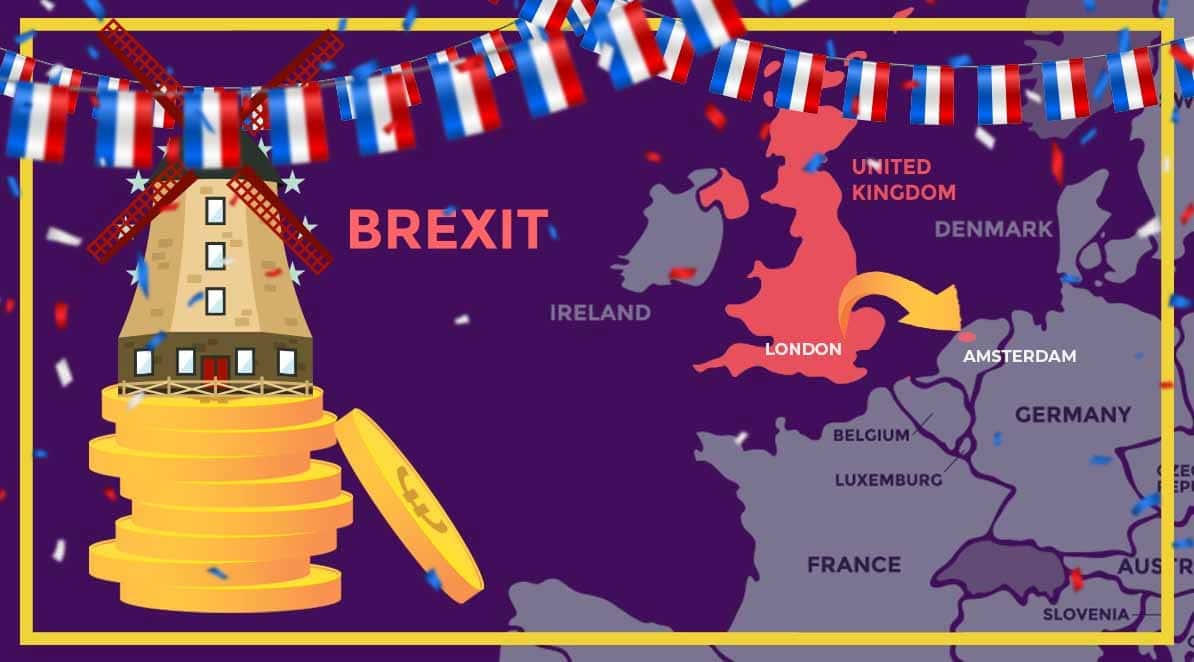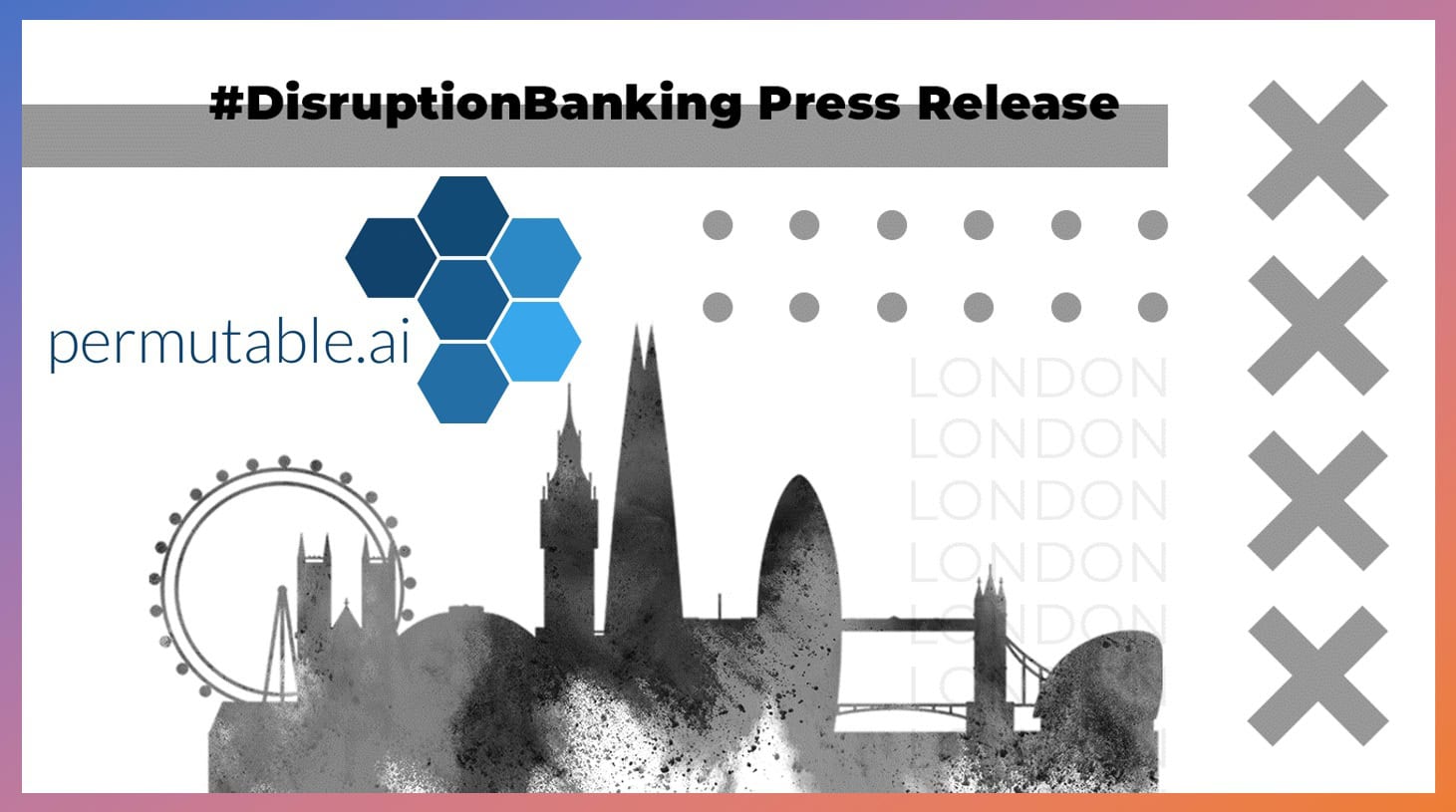It is almost six months since Amsterdam found itself thrust into the limelight in the ongoing story of Brexit’s impact on Europe’s financial capitals.
To an extent an out-rider – compared to Paris and Frankfurt at least – in many analyses, the Dutch city looked to be in the driving seat in mid-February as it overtook London as Europe’s largest share-trading centre.
Previously Europe’s sixth-largest trading hub, Amsterdam saw daily trading rocket from €2.6bn (on average) during 2020 to €9.2bn during January, shunting London (where average daily trading halved from €17.5bn to €8.6bn) into second place, according to CBOE Global Markets data.
The moment generated positive international vibes for Amsterdam, buoyed by Intercontinental Exchange (ICE) announcing the same week that trading in European Union carbon allowances (worth €1bn daily) would be shifting to the Dutch city’s ICE Endex.
The headlines were seductive for those piling up examples to highlight London’s diminished status – and kept coming during March:
Amsterdam: Europe’s surprise early winner as Brexit shakes up the City https://t.co/0RTfbEJlEl
— Financial Times (@FinancialTimes) March 11, 2021
Amsterdam’s breakthrough followed a succession of organisations opening EU-specific trading platforms: for example, the London Stock Exchange’s Turquoise went live (in Amsterdam) for euro-denominated shares in November 2020.
Commentaries largely trod a more restrained path. ‘The change can be compared to moving a computer that processes online store orders from one city to another. While the computer has moved, all of its customers and suppliers are still in the same place. Likewise, while share trading has shifted, most of the traders, brokers and asset managers are still in London,’ the Guardian’s banking correspondent, Kalyeena Makortoff, noted in her report on the CBOE data.
Former Boris Johnson adviser Gerard Lyons, who co-founded Economists for Brexit, authored a piece in the Spectator strong on both pro-London sentiment and technical explanation, while Times economics editor Phil Aldrick also sought to set things in context:
Amsterdam has not eclipsed the City. It has overtaken it in one narrow measure of EU equities trading. The City will remain Europe's financial capital. This is symbolic in the context of Brexit but not meaningful https://t.co/i8ZFVOtp2T
— Philip Aldrick (@PhilAldrick) February 11, 2021
London seems to have shown bouncebackability. The latest CBOE data saw Bloomberg describe the Square Mile as ‘regaining its crown’ for the first time in 2021 (albeit with trading ‘far below’ pre-Brexit levels): an average €8.9bn-worth of shares were traded daily in London during June, compared with €8.8bn in the Netherlands.
For those who advocate for London, it was perhaps a moment to crack open a bottle of Amstel (symbolically, of course):
Good to see London reclaim Europe’s top share trading slot from Amsterdam. While in many ways this title is symbolic, it’s reflective of things settling down and bedding in post-Brexit. A sign also, of the deepening relationship with Swiss financial centres.
— Miles Celic (@TCUKmiles) July 2, 2021
So, how has the overall Brexit story (so far) played out for those who seek to woo businesses to the Netherlands? Or – to quote the Netherlands Foreign Investment Agency (NFIA) – those who have been ‘rolling out the orange carpet’ for companies since 1978?
“We quickly made a plan and identified sectors that would face problems, for example financial services companies due to licensing issues,” says Michiel Bakhuizen, NFIA strategic adviser and spokesperson, reflecting on the aftermath of UK citizens having voted by 52% to 48% in favour of leaving the European Union in 2016.
“We started contacting those companies and they started contacting us,” he says during a videocall with #DisruptionBanking, citing fintech, payments, Asian banks and ‘trading companies’ as among the Netherlands’ financial services priority sub-sectors in the context of Brexit.
“We also identified clusters that were not relevant, for example, well-known investment banks would not likely opt for expansion in the Netherlands due to our bonus-cap rules that were brought in after the global financial crisis,” he adds.
The Dutch government in 2015 decided to limit financial sector workers’ variable pay to a maximum of 20 per cent of base salary. This is widely seen as explaining why Amsterdam has – despite its popularity as a trading hub – largely missed out on the post-Brexit relocations of global banking’s biggest names.
‘Dutch policymakers have tended to play down the rigidness of the 20 per cent bonus cap by claiming that it does not apply to UK banks moving to the Netherlands,’ notes Els de Wind, a partner at Amsterdam-headquartered Van Doorne, on the law firm’s website. ‘However, this is not the full story,’ she continues. ‘Although there are exceptions to the 20 per cent cap for UK financial institutions seeking to obtain a Dutch licence as a bank, insurer or other kind of financial institution, the conditions to these exceptions are rather strict and will not provide relief in all circumstances.’
According to New Financial’s ‘Brexit & The City: The Impact So Far’ report, published in April, more than 440 firms in banking and finance have moved or are moving part of their business, staff, assets or legal entities from the UK to the EU. Of these, 48 have chosen Amsterdam (135 plumped for Dublin; 102 for Paris; 93 for Luxembourg 93; and 62 for Frankfurt).
Of the 48 Amsterdam movers, there are a few high-street names (for example, Royal Bank of Scotland) but more than 60 per cent are ‘diversified financials’, with six exchanges or trading platforms (including CBOE) and 14 specialist trading firms (for example, Jane Street and Quantlab). Among the fintechs donning a pair of clogs is London-headquartered Currencycloud, whose Dutch entity (‘Currencycloud BV’) has secured an e-money licence from the De Nederlandsche Bank (central bank).
In choosing Amsterdam, Currencycloud chose an EU location with a strong reputation in fintech, its ecosystem fuelled by organisations such as HollandFintech (which organised last month’s Amsterdam Fintech Week: #XFW21); and the city’s status as host to the Money20/20 Europe event (next being held from 21-23 September):
#M2020 has always been the platform for the fintech industry's biggest launches & announcements. And with an audience like ours, why wouldn't it be?
— Money20/20 (@money2020) July 13, 2021
Have you got something huge you want to shout from the rooftops at #M2020EU this September in Amsterdam?https://t.co/nHNeK0UVZP pic.twitter.com/OJ2sqnAkc1
The strength of the Netherlands’ digital infrastructure – particularly its rapid internet speeds (something that marketing bodies have been pushing for years) – was also identified as an important Dutch asset by those consulted for this article.
The Netherlands’ digital pedigree dates back to the establishment of the Amsterdam Internet Exchange (‘AMS-IX’) in the 1990s. “If you need a very, very, very fast internet connection, then Amsterdam is the place for you,” says Bakhuizen.
Combine this connectivity with the city’s long history as a trading centre (its famous stock exchange has been part of the Euronext group since 2000) and the city’s reputation for so-called ‘speed trading’ – or algorithmic (‘algo’) trading – makes sense.
What makes #tech and #IT companies thrive in the Netherlands? It's the great #digitalinfrastructure, our tech-savvy, multilingual workforce, and an innovative and open culture.https://t.co/ShLXO419Y0 pic.twitter.com/xlfAjftZpn
— NFIA Holland (@nfiaholland) June 29, 2021
“Geography – physical proximity – really matters, even in digital trading. If you trade in nano-seconds, it matters whether you are in Amsterdam or somewhere else,” says Rem Korteweg, a senior research fellow at think-tank the Clingendael Institute who authored a paper titled ‘Going Dutch: Which firms are moving to the Netherlands because of Brexit?’ a couple of years ago.
“For trading, especially high-speed ‘flash’ trading, it’s very important to be close to these internet nodes,” concurs one Dutch financial services veteran, speaking to #DisruptionBanking about Brexit on condition of anonymity.
As well as the boutique trading houses and fintechs, Korteweg also points to Amsterdam having a strong appeal to Japanese financial institutions – an example being Tokyo-headquartered Norinchukin, which announced in 2019 that it was to open a subsidiary in Amsterdam in response to Brexit – presumably at least partly attracted by a strong pre-existing presence of Japanese multinationals such as Canon and Mitsubishi.
There is a further emerging dynamic at play, too, with analyses highlighting Amsterdam’s appeal for IPOs and SPACs (special purpose acquisition companies). ‘In new stock offerings at least, the momentum behind Amsterdam could feed on itself,’ opined one Bloomberg contribution during that heady week in February.
Looking ahead, the UK and EU will strive to decide the terms of their future relationship via the Joint UK-EU Financial Regulatory Forum (which follows the UK-EU ‘Memorandum of Understanding’).
At present, the regulatory environment is one of ‘profound uncertainty’. The separation of the UK and EU in financial services ‘continues and is unlikely to be reversed,’ noted ‘Brexit and its effects on European and Dutch Capital Markets’ – a recently updated version of a 2019 report commissioned by Capital Amsterdam. The mood music on the sensitive but critical issue of ‘equivalence’ is awful:
Chancellor confirms that UK has given up trying to secure greater access to EU markets for financial services firms.
— Joel Hills (@ITVJoel) July 1, 2021
City of London has been largely cut off since Brexit completed at end of last year.
Sunak says deal on equivalence “has not happened”.
Where does this leave the Netherlands? Korteweg foresees a “constant trickle” of further financial services moves from the UK in the coming years.
But some of these could be difficult to track: financial services relocations are, per se, markedly less visible than what our anonymous contributor describes as “huge boxes being dumped into the beautiful landscape” – the Dutch ‘warehouse boom’ triggered by companies that trade tangible goods across the Noordzee.
In financial services European regulators seem to want to ensure that (to borrow a phrase) ‘Brexit means Brexit’ and that major financial institutions are not pulling the wool over anyone’s eyes when it comes to setting up new entities inside the 27-member bloc.
“We don’t do ‘letterboxes’ or ‘paper structures’ – we generally would want an organisation to have five or more people or more than €500,000 put into their physical investment in the Netherlands,” says Bakhuizen.
For NFIA, the Brexit opportunities continue to flow. “We are watching the equivalence discussions very closely,” says Bakhuizen. “We are still in talks with a lot of companies, for example tech companies, to set foot on Dutch soil. The first set of companies to arrive acted fast but a lot are facing problems now.”
“We expect to have Brexit-related work for at least the next five years – it’s absolutely not over,” he adds. “If history has showed us anything, it’s that things like Brexit are very unpredictable.”
By Ian Hall
In previous Brexit-related explorations for #DisruptionBanking, Ian examined how Dublin/Ireland, Luxembourg and Frankfurt are faring
#Netherlands #Amsterdam #Brexit #EuropeanUnion #trading #algotrading #equivalence #London #CBOEGlobalMarkets #IntercontinentalExchange #digitalfinance #M2020EU #FutureBankingCareers

#DisruptionBanking is a media partner of Money 20/20 Europe, which will take place in Amsterdam from 21-23 September 2021















3 Responses